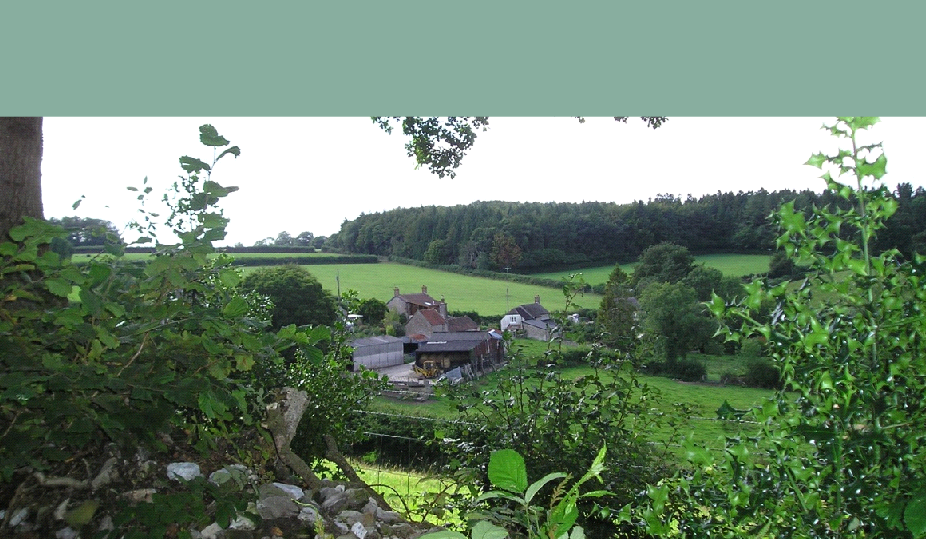GRIBB ARSENIC POISONING
The story of an arsenic poisoning in Thorncombe, appears to have gripped the nation
during the summer of 1841. Newspapers across the country including The London Standard
reported the resulting trial in detail 1. The report relates how the Coombes family,
who lived at Gribb, then a Thorncombe hamlet (pictured above, seen from Blind Lane),
narrowly escaped death after arsenic was added to their breakfast, a broth made of
barley meal, bread, salt and hot water. The culprit William Major, 76, father of
Ann Coombes who lived with the family, was found guilty and condemned to death by
hanging at the Devon Sessions.
On the 1838 Tithe Map apportionment William Major is listed as renting plots
717 and 721, a house and garden, from Joseph Aplin, which today are on the site
of Gribb Farm on Chard Street 2. The 1841 Census lists agricultural labourer Thomas
Coombes (50) , his wife Anne (40), and their three children William (10), Hannah
(5), and Elizabeth (4) 3.
At the trial, the local postman Joseph Hibley, stated he got ‘two pennyworth’
of arsenic from Samuel Gare’s shop in Chard as a favour, after Major sought advice
on how to kill rats which he said were eating his potatoes. Major was described prejudicially
in another newspaper report written before the trial took place, as a man ‘of bad
disposition’. His daughter gave evidence that ‘the prisoner’ had threatened to
kill his son-in-law William Coombes a few days previous to the alleged poisoning
during an argument. Major predicted that Coombes would ‘die in a ditch like another
Gypsey [sic]’.
On the day of the poisoning, four months previously, Major’s grand-daughter,
Elizabeth, took the broth in a ‘can’ which had been cooked by her mother to her
father William who had been at work since about 5.30 am. Elizabeth, ‘a very intelligent
child’, described to the court how her grandfather was sitting by the fire and when
her mother left the room she saw him put something into the cooking pot. Disliking
the taste of the broth Coombes told the court he gave it to his small daughter. Both
were taken ill with vomiting along with Elizabeth Coombes who had also eaten some
of it. Surgeon H.N. Pink who attended Elizabeth and William Coombes for three weeks,
confirmed that both of them appeared to have been poisoned.
Various newspapers subsequently reported that William Major who had always protested
his innocence was reprieved on the grounds that the Coombes family was of poor character.
Elizabeth Coombes admitted to perjury and William Coombes was described as a drunkard
4.
EVE HIGGS
August 2011
REFERENCES
1. The Standard (London, England), Monday, August 02, 1841; Issue 5333
2. DHC PC/THO Thorncombe Parish Tithe Map 1839
3. www.opcdorset.org/ThorncombeFiles/1841Thorncombe.htm
4. The Cornwall Royal Gazette, Falmouth Packet and Plymouth Journal (Truro, England),
Friday, August 20, 1841; Issue 3966
ABBREVIATIONS
DHC: Dorset History Centre



